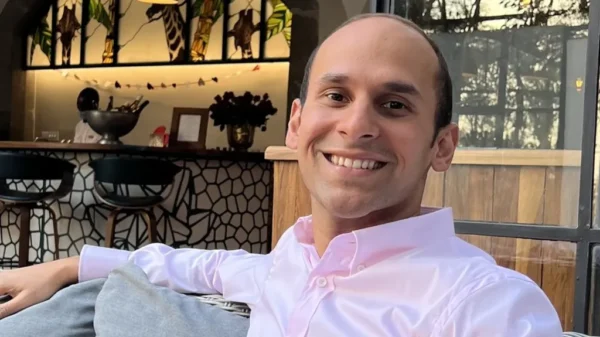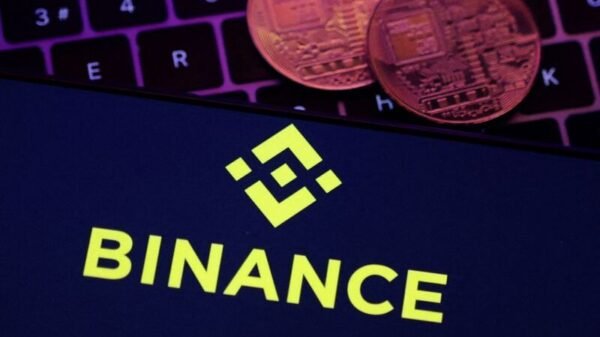U.S. regulators sued Binance and its CEO Changpeng Zhao for allegedly running a “web of deception,” putting pressure on the world’s largest cryptocurrency exchange and sending Bitcoin to its lowest in almost three months.
The SEC filed 13 allegations against Binance, Zhao, and the operator of its ostensibly independent U.S. exchange in a federal court in Washington, D.C.
The SEC said Binance overstated trade volumes, misappropriated customer funds, failed to restrict U.S. customers, and deceived investors about its market surveillance controls.
The SEC also claimed that Binance and Zhao, its wealthy founder and one of the crypto industry’s most prominent moguls, secretly controlled customers’ assets and used investor funds “as they please.”
The SEC also claimed that Binance constructed several U.S. organizations “as part of an elaborate scheme to evade U.S. federal securities laws,” citing Reuters’ investigations into the exchange from this year and 2022.
Sigma Chain, Zhao’s trading business, participated in wash trading to inflate Binance’s crypto asset securities trade volume from roughly three years ago to June 2022.US platform, SEC claimed. In addition, the SEC said Sigma Chain spent $11 million on a yacht from one account.
“We allege that Zhao and Binance entities engaged in an extensive web of deception, conflicts of interest, lack of disclosure, and calculated evasion of the law,” SEC Chair Gary Gensler stated.
“We intend to defend our platform vigorously,” Binance wrote in a blog post. “Because Binance is not a U.S. exchange, the SEC’s actions are limited in reach.”
“All user assets on Binance and Binance affiliate platforms, including Binance.US, are safe and secure,” the blog post read.

Binance claimed it “actively cooperated” with the SEC “from the start” and “respectfully disagreed” with its assertions. However, the SEC “at the eleventh hour” submitted new petitions and proceeded to court after Binance tried to reach a “reasonable resolution” with them. As a result, Binance claimed the SEC was “claiming jurisdictional ground from other regulators.”
Binance.Zhao’s U.S. tweeted that the complaint was “unjustified by the facts, by the law, or by the Commission’s own precedent.”
On the announcement, Bitcoin, the world’s largest cryptocurrency, plummeted 6% to its lowest in almost three months. BNB, the fourth-largest cryptocurrency, fell almost 5%.
The SEC’s case against Binance might cripple the crypto industry, market players say. Binance dominated crypto trading last year, completing $65 billion in daily trades.
Binance’s spot market share fell to 57.7% from 62.0% in February, according to CCData. However, derivatives trading increased.
“I think there’s a big risk here that this could be crippling to Binance,” said Oanda senior market analyst Ed Moya.
Legal headaches
The CFTC sued Binance in March for operating an “illegal” exchange and a “sham” compliance scheme. Zhao labeled those “incomplete recitation of facts.”
According to sources, the Justice Department is investigating Binance for money laundering and sanctions violations.
Binance Holdings is located in the Cayman Islands. CEO Zhao, a Canadian born in China till age 12, started it in Shanghai in 2017. The exchange has no headquarters and won’t reveal the location of Binance.com.
Zhao “surreptitiously evaded U.S. laws,” the SEC claimed. Binance’s chief compliance officer told the agency: “We do not want [Binance].com to be regulated ever.” Despite Binance.US’s claims of independence, Zhao directed it.
The SEC said billions of dollars in Binance consumer assets were blended, or mixed, with corporate funds, in violation of U.S. laws, in a bank account of a company owned by Zhao and then transferred to Merit Peak, a trading firm also controlled by Zhao.
Reuters reported that Binance mixed consumer funds with corporate revenues in Merit Peak’s U.S. bank account last month. Binance claimed customers who contributed money to the account bought its dollar-linked cryptocurrency, not deposits.
Before the SEC case, Reuters revealed that a top Binance official operated five BAM Trading bank accounts, including one that stored American users’ assets.
The SEC stated that until December 2020, the executive had “signatory authority over BAM Trading’s U.S. Dollar accounts.”








































Comment Template